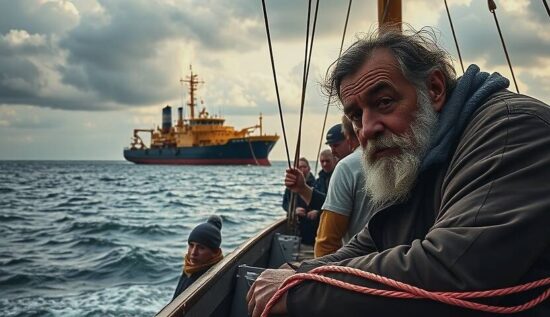Tanker ‘Eventin’ Stranded Off Rügen, Germany, Amid Controversy
A tanker, the Eventin, has run aground approximately 20 kilometers off the coast of Rügen, Germany, sparking a controversy over the ship’s fate and the potential implications of international sanctions. The vessel, built in South Korea in 2006, was en route from Ust-Luga to Port Said and likely bound for India when it became stranded.
According to a report by the Norddeutscher Rundfunk (NRD), a multipurpose ship and two tugboats are on their way to assist the tanker, with speculation surrounding the destination, either Denmark or Rostock. However, it is crucial to note that German tugboats only operate within German ports, making Rostock the likely destination.
Once the Eventin is towed to Rostock, it will be held in the port until the necessary repairs and inspections are completed, a standard procedure. The concern surrounding the rescue effort lies in the potential storm in the area.
Critics argue that the Eventin, registered under the Panamanian flag, is not an “older, decrepit tanker” as the NRD claimed, but rather a representative of the global tanker fleet’s average age of 19 years. The ship is, however, listed on the Ukrainian government’s sanctions list, although it is not on the EU’s latest sanctions list, which features numerous other tankers operating on the Russia-India and Russia-China routes.
The German authorities’ response to the situation remains unclear. In a recent case, the captain of the Atlantic Navigator II, a ship flying the Marshall Islands flag and carrying Russian uranium for the United States, was fined by the Rostock state prosecutor for violating sanctions. This decision was met with legal and ethical criticism, as the goods on board the ship did not violate sanctions until they left the port, and the ship never left the harbor.
It is possible that the customs office in Stralsund and the Rostock state prosecutor may take a similar approach in this case, given the similar circumstances. The Eventin, like the Atlantic Navigator II, was towed to Rostock due to a mechanical issue and remained in the port for an extended period, far exceeding the necessary repair time.
The outcome of any potential legal action, including claims for damages, is unknown. It is, however, certain that the German authorities’ actions will be closely watched, not only by the ship’s owner and the parties involved in the cargo but also by the intended recipients of the tankers’ cargo in India or China.
The situation may become even more complex if a ship on the EU’s sanctions list is involved, as it may not be allowed to enter an EU port. The sanctions regime collides with maritime law and, in the case of German waters, with German law, an issue that may only become apparent in a specific case.





